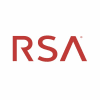I was working on a very critical project involving cluster deployment and needed RSA technical support to help us configure the cluster in our environment for on-premise. They assigned two engineers. One was not available until the last moment even though we contacted them nearly one month in advance. For that whole month, we were not told what we needed for the update, then just one day before the actual upgrade, they came out and said that they require physical access, a CD to be inserted in the data center, etc. Our project ended up being delayed as a result. The other engineer, in the middle of the upgrade, told us he was not sure what kind of architecture we were using. Support needs to improve their communication and efficiency as a whole.


